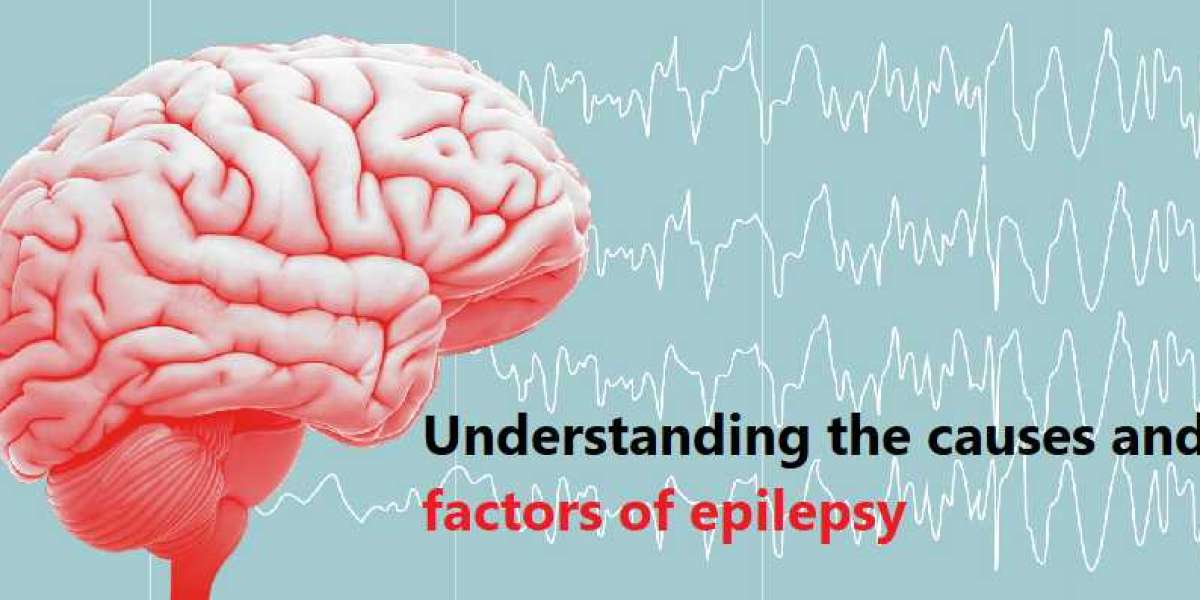Epilepsy is a neurological disorder that affects the brain and causes seizures. It is one of the most common neurological disorders, affecting over 50 million people worldwide. While seizures can be caused by a variety of factors, the underlying cause of epilepsy is often unknown. Understanding the causes and risk factors will help you with the diagnosis and epileptic seizure treatment in Jaipur of this condition.
One of the most common causes of epilepsy is brain injury or trauma. Traumatic brain injuries, such as those caused by a car accident or fall, can lead to the development of epilepsy. In these cases, the seizures are typically caused by damage to the brain tissue, which can disrupt the normal electrical activity in the brain.
Another common epilepsy symptom is a brain infection, such as meningitis or encephalitis. These infections can cause inflammation in the brain, which can lead to seizures. In some cases, the infection can leave permanent damage to the brain, which can lead to the development of epilepsy.
Genetics also plays a role in the development of epilepsy. Some genetic disorders, such as tuberous sclerosis and neurofibromatosis, increase the risk of developing epilepsy. Additionally, some genetic mutations have been linked to the development of specific types of epilepsy.
Stroke, brain tumors, and other brain disorders can also lead to the development of epilepsy. In these cases, the seizures are typically caused by damage or abnormal growth in the brain.
Certain lifestyle factors can also increase the risk of developing epilepsy. Alcohol and drug abuse, for example, can lead to brain damage and increase the risk of seizures. Additionally, lack of sleep and poor nutrition can also increase the risk of seizures.
Risk factors for developing epilepsy include:
Head injuries
Brain infections
Genetic disorders
Stroke
Brain tumors
Alcohol and drug abuse
Lack of sleep
Poor nutrition
Certain groups of people are also at a higher risk of developing epilepsy. For example, older adults are more likely to develop epilepsy than younger adults. Additionally, people with developmental disorders, such as autism and intellectual disability, are also at a higher risk of developing epilepsy.
It is important to note that many people with epilepsy have no identifiable cause for their condition. This is known as idiopathic epilepsy, which accounts for about 70% of all cases.
Diagnosis of epilepsy typically involves a thorough medical history and a physical exam, as well as neurological tests such as an EEG (electroencephalogram). An EEG measures the electrical activity in the brain, and can help identify abnormal patterns that may indicate epilepsy. Imaging tests, such as an MRI (magnetic resonance imaging) or CT (computed tomography) scan may also be used to help diagnose epilepsy and identify any underlying causes.
Treatment for epilepsy typically involves medications, known as antiepileptic drugs (AEDs), which help to control seizures. In some cases, surgery may be recommended to remove the part of the brain that is causing seizures. Additionally, lifestyle changes, such as avoiding triggers that can lead to seizures, can also help to manage epilepsy.
It's important for people living with epilepsy to work closely with their healthcare provider to find an appropriate treatment plan that works best for them. It's also important to be aware of the causes and risk factors of epilepsy, as it can help in early diagnosis, preventing seizures and managing the condition.
Treatment options in Jaipur
Jaipur, the capital of Rajasthan state in India, is home to a number of specialized hospitals and clinics that offer treatment for epileptic seizures.
One of the most renowned medical centers in Jaipur for epilepsy treatment is the Sawai Man Singh (SMS) Hospital. The hospital has a dedicated Epilepsy Clinic that offers a range of treatment options, including medication management, surgery, and lifestyle changes to help control seizures. The clinic is staffed by experienced neurologists and neurosurgeons who are skilled in the diagnosis and treatment of epilepsy.
In addition to these specialized hospitals, there are also many private clinics in Jaipur that offer epilepsy treatment in Jaipur. Many of these clinics are staffed by experienced neurologists and neurosurgeons who are skilled in the diagnosis and treatment of seizures.
In summary, Jaipur has a number of specialized hospitals and clinics that offer treatment for epileptic seizures, including Sawai Man Singh (SMS) Hospital, Mahatma Gandhi Medical College and Hospital (MGMC), and many private clinics. These medical centers are staffed by experienced neurologists and neurosurgeons who are skilled in the diagnosis and treatment of epilepsy. It’s advisable to consult with a specialist for a proper diagnosis and treatment plans. We recommend you visit an epilepsy doctor in Jaipur in this serious state.
Conclusion
Epilepsy is a neurological disorder that affects the brain and causes seizures. The underlying cause of epilepsy is often unknown, but it can be caused by a variety of factors, including brain injury or trauma, brain infections, genetic disorders, stroke, brain tumors, alcohol, and drug. we recommend you to take consult with a specialist doctor and get proper treatment.



